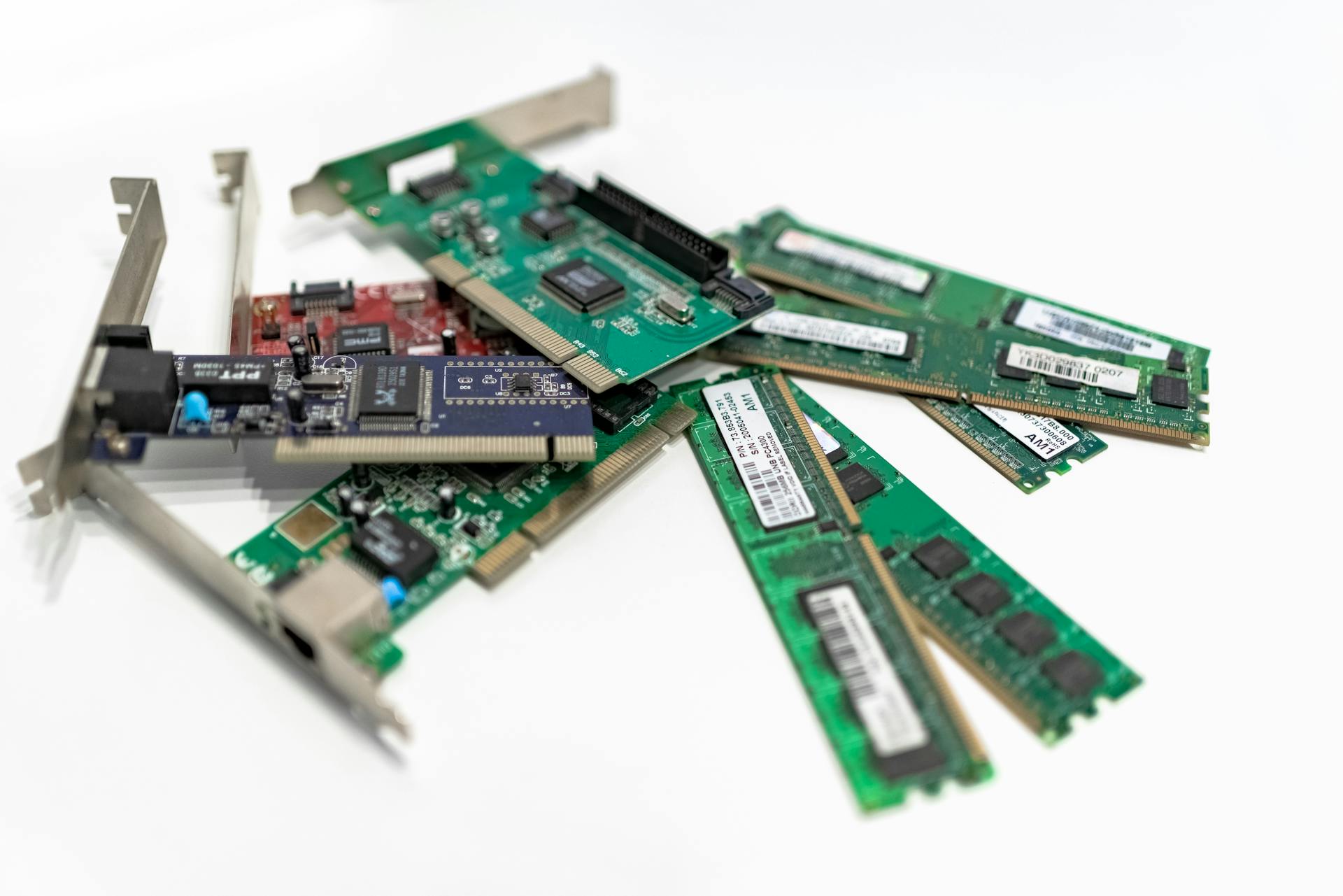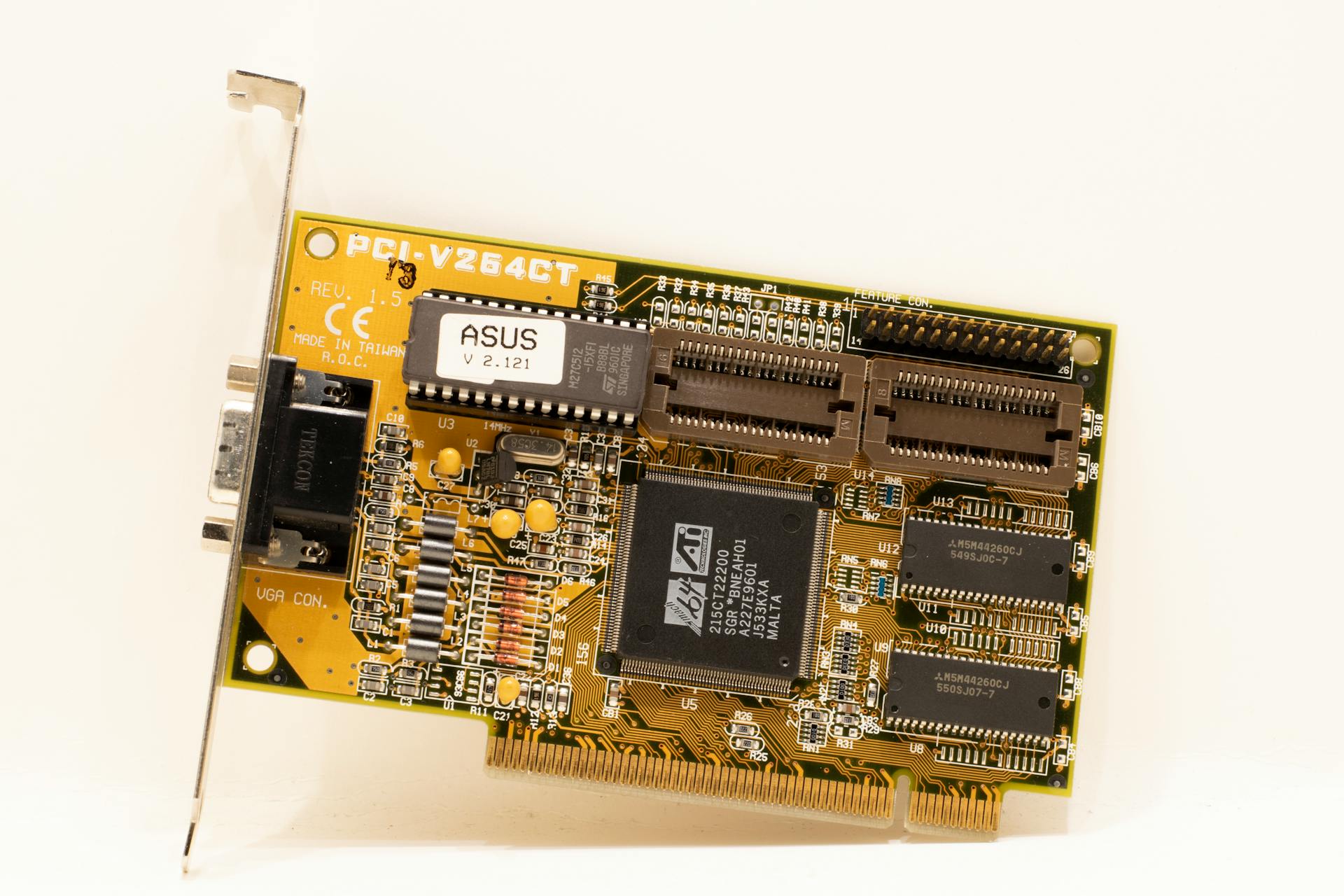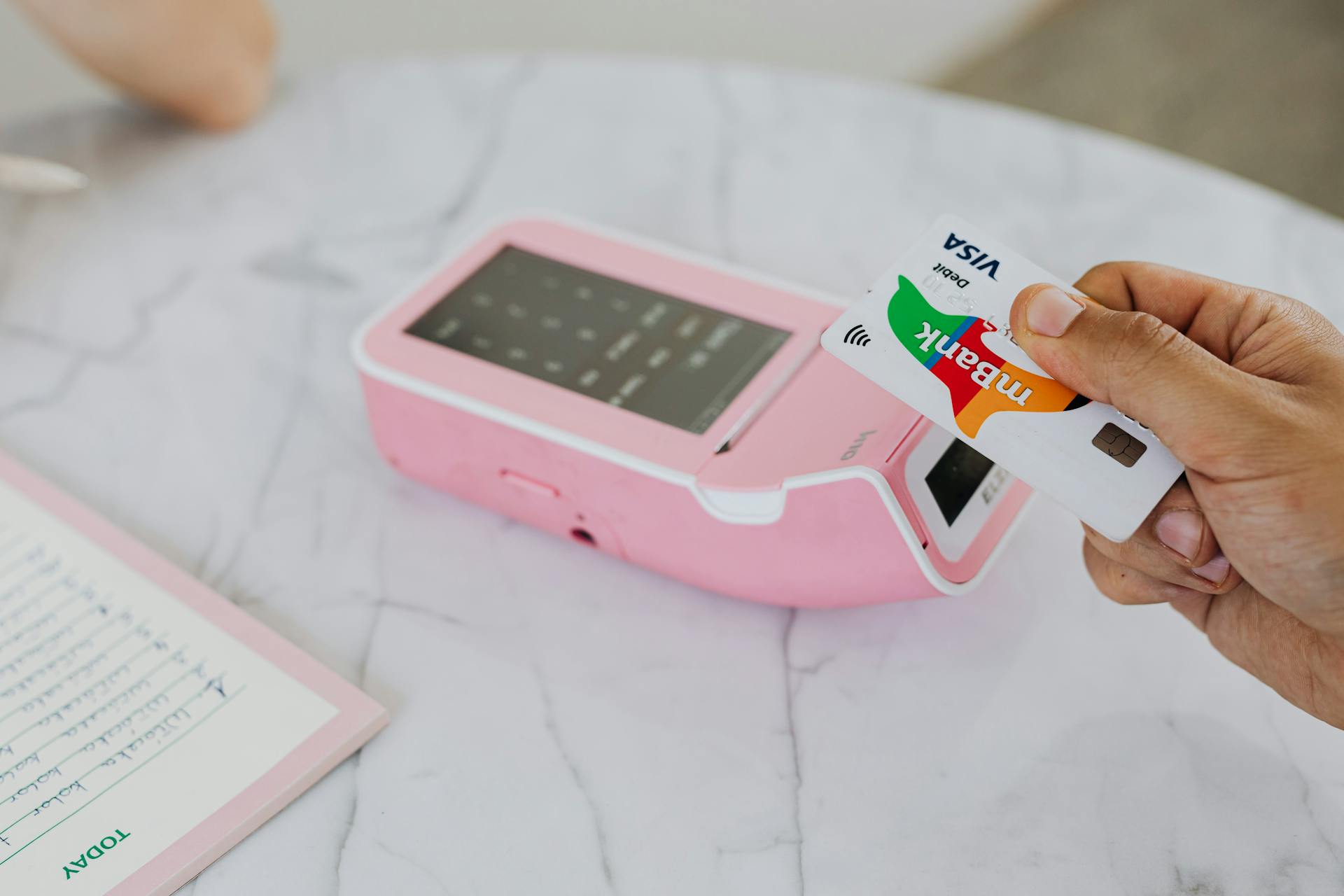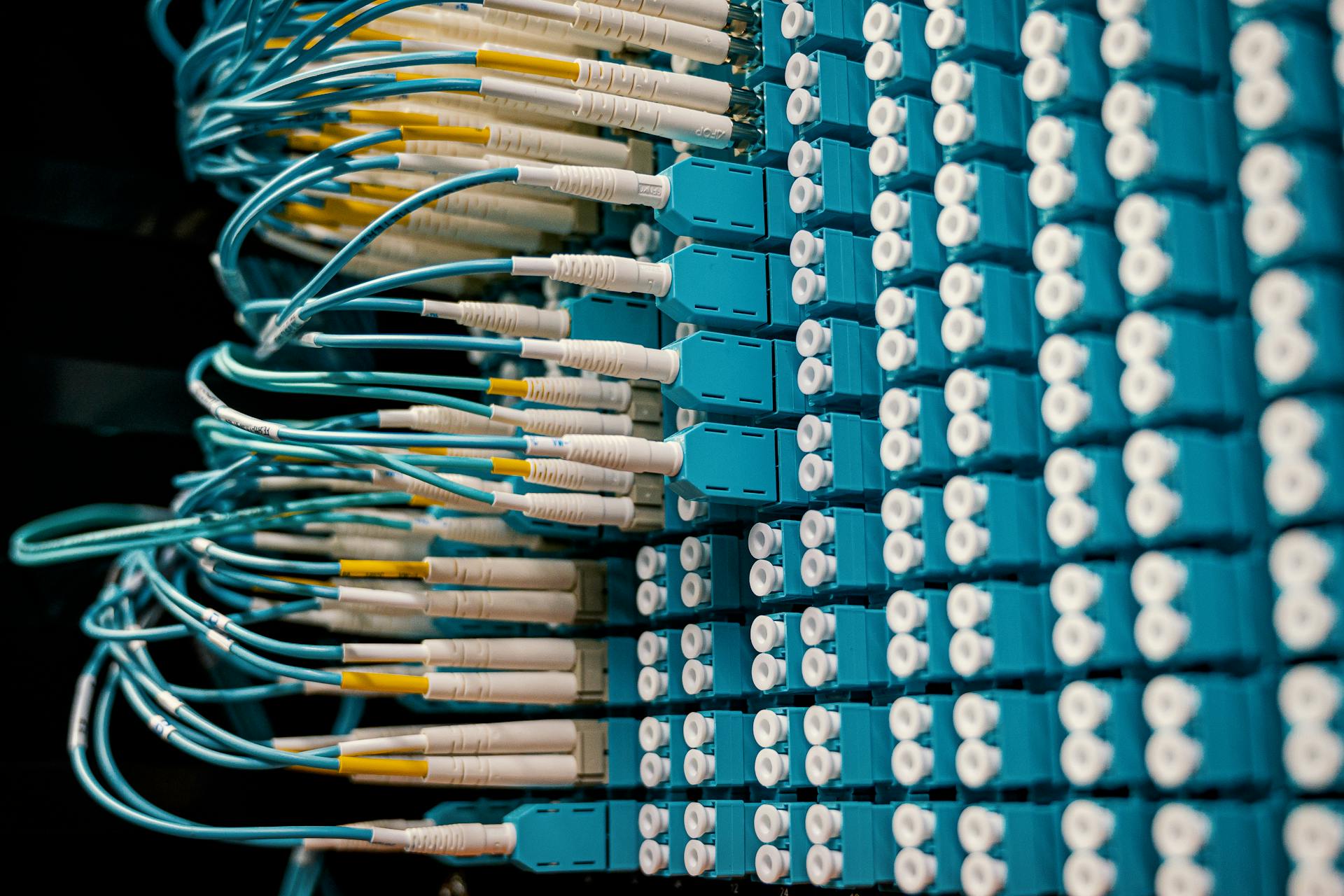
Compliance with PCI DSS and HIPAA is a must for healthcare and payment processors, as both regulations have severe penalties for non-compliance.
The Payment Card Industry Data Security Standard (PCI DSS) requires that all merchants who handle credit card information implement robust security measures to protect it.
Healthcare organizations must comply with the Health Insurance Portability and Accountability Act (HIPAA) to safeguard sensitive patient health information.
To avoid costly fines and reputational damage, both PCI DSS and HIPAA compliance must be achieved and maintained.
If this caught your attention, see: Pci Dss Information Security Policy
What Is PCI DSS HIPAA?
PCI DSS and HIPAA are two separate regulations, but they often overlap in the healthcare industry. PCI DSS is primarily focused on protecting sensitive payment information, while HIPAA is centered around safeguarding patient health data.
To comply with PCI DSS, organizations must implement specific security measures, such as encrypting cardholder data and regularly updating firewalls. This helps prevent data breaches and ensures the secure transmission of sensitive payment information.
HIPAA regulations, on the other hand, require healthcare organizations to protect the confidentiality, integrity, and availability of patient health information. This includes implementing administrative, technical, and physical safeguards to prevent unauthorized access or disclosure.
Take a look at this: Wage Payment Collection Law
What Is PCI DSS?

PCI DSS is a set of security standards designed to ensure that companies that handle credit card information maintain a secure environment.
These standards were developed by the Payment Card Industry Security Standards Council (PCI SSC), a global forum that was established in 2004 to create and maintain standards for the protection of credit card information.
The PCI DSS is not a law, but rather a requirement for companies that want to accept credit card payments.
The standards are updated regularly to reflect the latest security threats and best practices.
Companies that are required to comply with PCI DSS include merchants, banks, and other financial institutions.
Compliance with PCI DSS is a complex process that involves multiple steps, including conducting a risk assessment and implementing various security controls.
The PCI DSS requires companies to maintain a secure network, protect sensitive data, and implement strict access controls.
Companies that fail to comply with PCI DSS can face significant fines and penalties.
Check this out: Who Must Comply with Pci Dss
What Is HIPAA?
HIPAA is a set of regulations that protects the sensitive health information of individuals in the United States. It was created to ensure that healthcare providers and organizations handle patient data with care and confidentiality.
The Health Insurance Portability and Accountability Act (HIPAA) was signed into law in 1996 by President Bill Clinton. HIPAA is administered by the US Department of Health and Human Services.
HIPAA applies to healthcare providers, health plans, and healthcare clearinghouses, which are known as covered entities. These entities must follow HIPAA's rules to safeguard patient data and prevent unauthorized disclosure.
Covered entities must also provide patients with notice of their rights under HIPAA, which includes the right to access and request corrections to their health information.
You might like: Pci Compliance Levels for Service Providers
Similarities and Differences
The PCI DSS and HIPAA regulations may seem like two separate entities, but they do share some similarities. Both regulations require organizations to implement security controls to protect sensitive information.

One key similarity is that both have specific requirements for encryption, access controls, and regular security assessments. This ensures that organizations are taking proactive steps to safeguard sensitive data.
The PCI DSS has a set of 12 principles that act as guiding standards for organizations, while the HIPAA Privacy Rule establishes national standards for the protection of certain health information. The HIPAA Security Rule, on the other hand, establishes a national set of security standards for protecting specific health information held or transferred in electronic form.
Both regulations also have a compliance certification process that organizations must go through to demonstrate their adherence to the standard. This process helps ensure that organizations are meeting the necessary requirements to protect sensitive information.
Here's a comparison of the two regulations:
This table highlights the key differences between HIPAA and PCI DSS compliance.
Regulatory Compliance
Regulatory Compliance is a critical aspect of maintaining PCI DSS and HIPAA security. Non-compliance can lead to severe consequences.
Breach fines can be extremely costly, with PCI DSS penalties reaching up to €20 million or 4% of annual global turnover. HIPAA violations can result in fines ranging from $100 to $50,000 per violation.
To avoid these penalties, conduct regular risk assessments and audits to ensure ongoing security program compliance. This is especially important given the constantly evolving threat landscape.
Here's a breakdown of potential HIPAA fines:
- HIPAA violations range from fines of $100 per violation (with an annual maximum of $25,000 for repeat violations) to fines of $50,000 per violation (with an annual maximum of $1.5 million).
- Further, there can be criminal penalties that range from fines of $50,000 and one year’s imprisonment to fines of $250,000 and ten years’ imprisonment.
Consequences of Non-Compliance
Non-compliance with regulatory requirements can have serious consequences. Fines can be extremely costly, with payments brands able to fine financial institutions for non-compliance.
PCI DSS fines can be steep, with a maximum of €20 million or 4% of annual global turnover. This is a significant risk, especially considering the potential for breaching GDPR as payment data can also be considered personal data.
HIPAA's punishment severity varies, with fines ranging from $100 to $50,000 per violation. The annual maximum for repeat violations can be as high as $25,000 or $1.5 million.
Intriguing read: Card Data Covered by Pci Dss Includes
Criminal penalties for HIPAA violations can also be severe, ranging from fines of $50,000 and one year's imprisonment to fines of $250,000 and ten years' imprisonment.
GDPR fines can range from €10 million or 2% of a firm's worldwide annual revenue to €20 million or 4% of worldwide annual revenue. The most serious infringements can result in the higher end of this range.
Here are the potential fines for non-compliance with each regulation:
- PCI DSS: up to €20 million or 4% of annual global turnover
- HIPAA: $100 to $50,000 per violation, with annual maximums of $25,000 or $1.5 million
- GDPR: €10 million or 2% of worldwide annual revenue, or €20 million or 4% of worldwide annual revenue
Entities Overseeing Compliance
The entities overseeing compliance are a crucial aspect of regulatory compliance. HIPAA is managed by the government under the Office for Civil Rights (OCR), which is a significant difference from PCI DSS.
HIPAA requirements are only applicable to U.S. entities, whereas PCI DSS applies globally, making it a more universal standard. This is a key distinction between the two regulations.
Data Protection
HIPAA protects medical records and how they are shared, and PCI requirements cover cardholder data to prevent fraud and ensure consistency in payment processing.
Both HIPAA and PCI DSS have the same end goal: protecting sensitive data from being stolen or shared improperly.
The type of information protected differs between HIPAA and PCI DSS, with HIPAA focusing on patient data and PCI DSS on credit card data.
To meet HIPAA compliance requirements, Cisco Meraki products provide various security functions, including WPA2 encryption for wireless traffic and 802.1x network access control for user-based authentication.
No Individually Identifiable Health Information (IIHI) is ever sent to the Cisco Meraki cloud.
Cisco Meraki's out of band control plane separates network management data from user data, ensuring that user data does not flow through the cloud.
Information stored in the Cisco Meraki cloud includes device configurations, traffic statistics, and organization and network administrator credentials.
All communication to and from the Meraki cloud is encrypted with SSL.
Information stored within the Cisco Meraki cloud is securely stored in a redundant fashion and in highly available data centers.
Here are some examples of security features provided by Cisco Meraki products to aid with HIPAA compliance:
- WPA2 encryption for wireless traffic
- 802.1x network access control for user-based authentication
- MAC blocklisting/Allowlisting
- Virtual network isolation with multiple SSIDs or VLANs
- Wireless Intrusion Prevention w/ automatic containment of rogue SSIDs
- IPSEC VPN between sites or for remote clients
- User authentication against customer on-premise RADIUS or Active Directory server
- Layer 3 & 7 firewall
- User association and bandwidth usage information
- Logging of configuration changes to Cisco Meraki devices/networks
- Administrator password complexity, expiration, and timeout requirements
- Two-factor authentication for administrator access
GDPR and HIPAA
GDPR and HIPAA are two major regulations that impact how companies handle sensitive data.
The General Data Protection Regulation (GDPR) requires companies to obtain explicit consent from individuals before collecting and processing their personal data.
GDPR applies to any company that collects, stores, or processes personal data of EU residents, regardless of the company's location.
HIPAA, on the other hand, is primarily focused on protecting the health information of US citizens.
HIPAA requires covered entities to implement administrative, technical, and physical safeguards to protect patient data.
GDPR and HIPAA both have strict requirements for data breach notification, with GDPR requiring notification within 72 hours of a breach.
HIPAA has a similar requirement, with covered entities needing to notify individuals and the Department of Health and Human Services (HHS) within 60 days of a breach.
Readers also liked: Employer Health Insurance Cancellation Notice Requirement
Endpoint Security
Endpoint security is crucial in protecting sensitive data from unauthorized access. Companies often need to take a multifaceted approach to meeting compliances, especially if they're new to this.
Compliance standards like PCI, HIPAA, and GDPR look at multiple parts of an environment, requiring a comprehensive approach to achieve compliance. To get up and running, hiring a compliance specialist can be a good idea.
ThinScale has experience helping customers achieve compliance standards in PCI, HIPAA, and GDPR where they are relevant to the endpoint. This expertise can be a valuable asset in navigating the complexities of endpoint security.
Worth a look: Gdpr Pci Compliance
Implement Cybersecurity Measures
Implementing strong cybersecurity measures is crucial for protecting your company from data breaches. This requires a robust firewall and dedicated resources for a right-sized cybersecurity team.
Protecting patient information is especially important for healthcare businesses, where vendors have access to sensitive data. Conducting third-party risk assessments for all vendors is a must, as third-party risk continues to grow and medical information is highly targeted.
Developing an incident response plan is also imperative, as ransomware attacks continue to increase in frequency. Backing up patient data and other critical information is essential in case of a security breach.
Worth a look: Pci Compliance Risk Assessment
A robust cybersecurity team should include experts in payment card compliance, IT security, and data protection. This team can help manage costs and risk, and secure payment data.
Security Awareness Training is also a must, where employees are turned into a human firewall. This innovative training takes the boring out of security training, and can be done through e-learning modules.
If this caught your attention, see: Security Metrics Pci Compliance Cost
Payment Processing
Payment processing is a critical aspect of running a healthcare business, and it's essential to choose a trusted provider that meets PCI standards. Stax is a great example of a payment processor that is not only PCI compliant but also integrates with electronic medical and health records in a secure platform.
Small and medium-sized businesses, or SMBs, often require a unique approach to payment processing. They need a solution that is easy to use and secure, which is exactly what Stax provides.
A 24/7 support system is also crucial for SMBs, as it ensures that any payment-related issues can be resolved quickly and efficiently. Stax offers this level of support, making it an ideal choice for healthcare businesses.
On a similar theme: Pci Compliant Payment Gateway
Healthcare Data Security
Healthcare data security is a top priority for businesses that handle sensitive patient information. HIPAA protects medical records and how they are shared.
To protect patient data, healthcare businesses must implement strong cybersecurity measures, starting with a robust firewall. Conducting third-party risk assessments for all vendors is also crucial, especially for those with access to patient information.
Protecting patient data requires a proactive approach, including establishing security policies that meet the business needs. This involves developing an incident response plan and backing up patient data and other critical information.
HIPAA and PCI DSS overlap in their goal of protecting sensitive data from being stolen or shared improperly. Patient data and credit card data both require robust security measures to prevent data breaches.
Healthcare businesses are more vulnerable to data breaches and must take extra measures to protect themselves. A right-sized cybersecurity team and dedicated resources are essential for defending against malware and ransomware attacks.
Frequently Asked Questions
How are HIPAA and PCI DSS alike?
HIPAA and PCI DSS share a common goal of protecting sensitive information, requiring organizations to implement security controls to safeguard it. Both regulations focus on safeguarding sensitive data, but with different scopes and requirements.
Sources
- https://www.pcipal.com/knowledge-center/resource/what-are-the-main-differences-and-similarities-between-pci-dss-and-hipaa/
- https://documentation.meraki.com/General_Administration/Privacy_and_Security/Privacy_Concerns_and_Regulatory_Compliance_with_PCI_and_HIPAA
- https://www.thinscale.com/compliance-meeting-pci-dss-hipaa-gdpr-standards-on-your-endpoints/
- https://staxpayments.com/blog/pci-and-hipaa-compliance-need-to-know/
- https://ermprotect.com/blog/pci-hipaa-fedramp-cloud-compliance/
Featured Images: pexels.com


